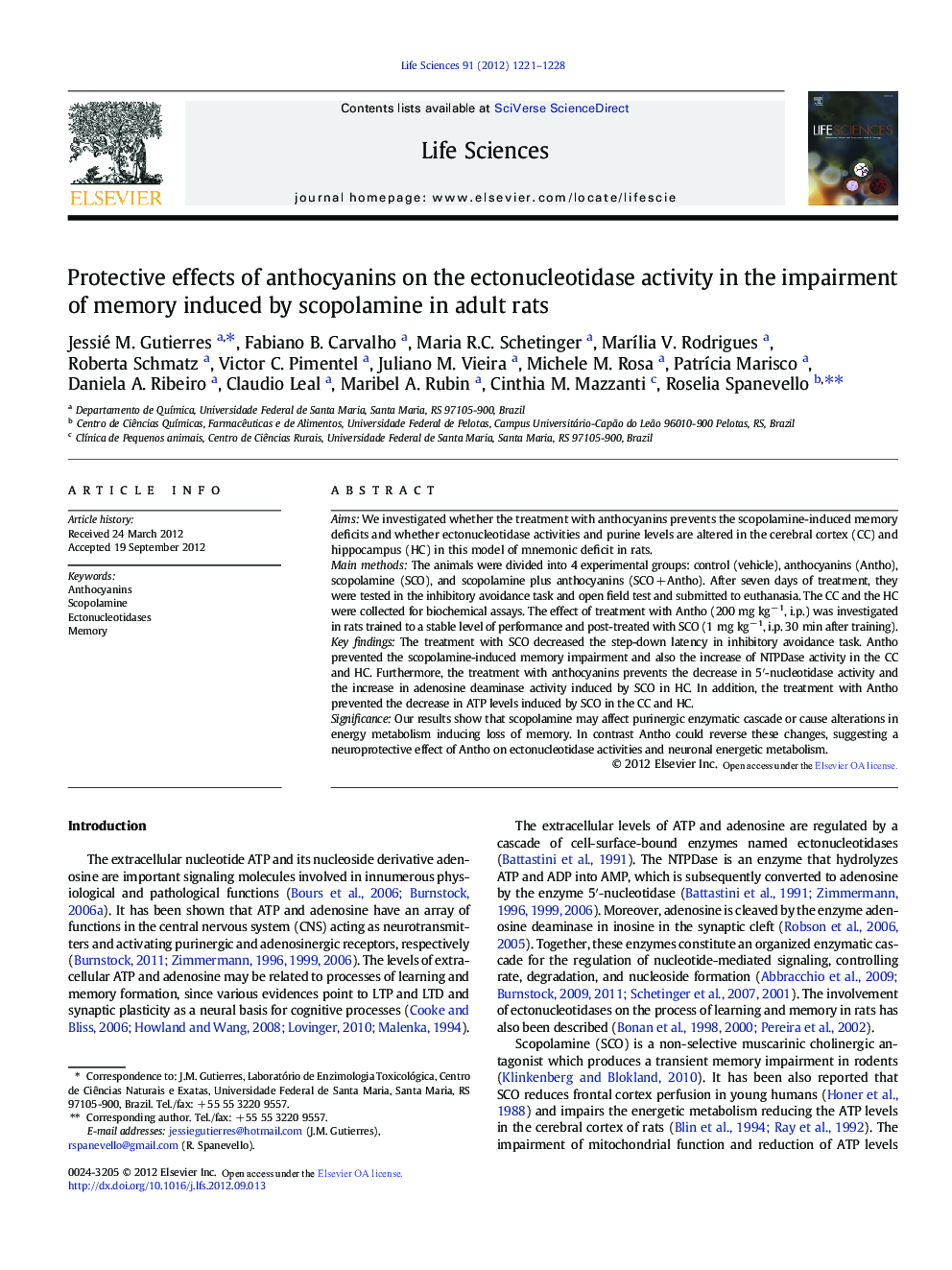| Article ID | Journal | Published Year | Pages | File Type |
|---|---|---|---|---|
| 5842691 | Life Sciences | 2012 | 8 Pages |
AimsWe investigated whether the treatment with anthocyanins prevents the scopolamine-induced memory deficits and whether ectonucleotidase activities and purine levels are altered in the cerebral cortex (CC) and hippocampus (HC) in this model of mnemonic deficit in rats.Main methodsThe animals were divided into 4 experimental groups: control (vehicle), anthocyanins (Antho), scopolamine (SCO), and scopolamine plus anthocyanins (SCO + Antho). After seven days of treatment, they were tested in the inhibitory avoidance task and open field test and submitted to euthanasia. The CC and the HC were collected for biochemical assays. The effect of treatment with Antho (200 mg kgâ 1, i.p.) was investigated in rats trained to a stable level of performance and post-treated with SCO (1 mg kgâ 1, i.p. 30 min after training).Key findingsThe treatment with SCO decreased the step-down latency in inhibitory avoidance task. Antho prevented the scopolamine-induced memory impairment and also the increase of NTPDase activity in the CC and HC. Furthermore, the treatment with anthocyanins prevents the decrease in 5â²-nucleotidase activity and the increase in adenosine deaminase activity induced by SCO in HC. In addition, the treatment with Antho prevented the decrease in ATP levels induced by SCO in the CC and HC.SignificanceOur results show that scopolamine may affect purinergic enzymatic cascade or cause alterations in energy metabolism inducing loss of memory. In contrast Antho could reverse these changes, suggesting a neuroprotective effect of Antho on ectonucleotidase activities and neuronal energetic metabolism.
